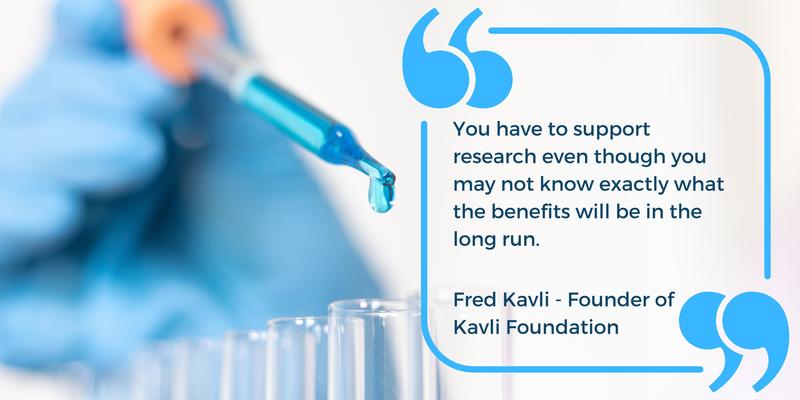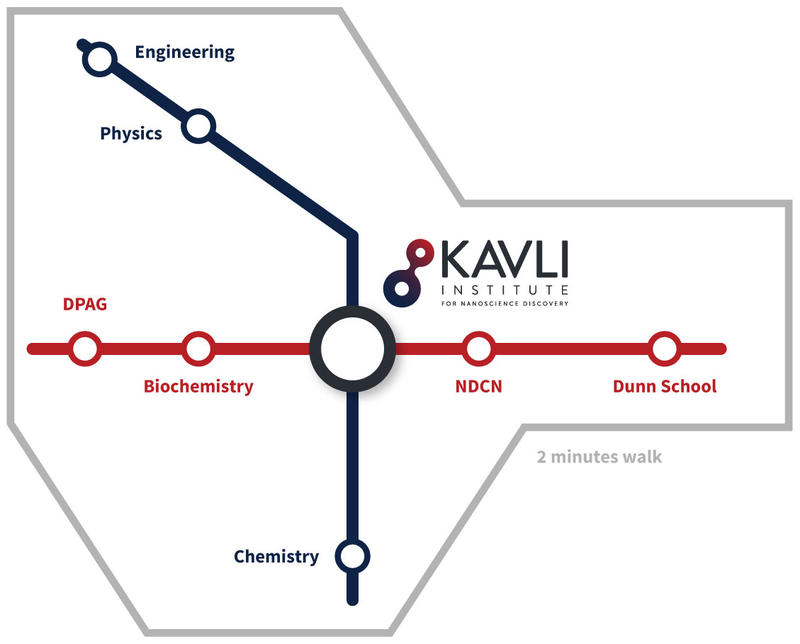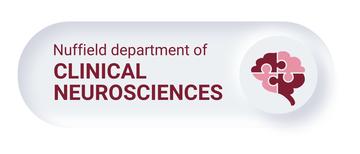About Us
The Kavli Institute for Nanoscience Discovery (Kavli INsD) is a groundbreaking interdisciplinary science institute focused on world-class nanoscience research. Established in April 2021 as the 20th institute funded by the esteemed Kavli Foundation, we are proud to be the University of Oxford's first institute spanning the life, medical, and physical sciences.
https://www.youtube.com/embed/Ixxy4tjsHlQ?si=uQR7D9T33pp-12Xu
Led by the distinguished Professor Carol Robinson, a renowned chemist specialising in mass spectrometry and the study of protein structures, Kavli INsD is committed to making significant contributions in critical areas such as antimicrobial resistance, brain and mental health, infectious diseases, and malaria. Additionally, we strive to develop cutting-edge instrumentation that brings the analytical power of the physical sciences into the realm of cellular exploration.
At Kavli INsD, our exceptional team of faculty and researchers represents diverse backgrounds in structural biology, biochemistry, pathology, chemistry, physics, physiology, and engineering. United by our shared focus on the nanoscale—the scale of proteins, viruses, and DNA—we are at the forefront of unravelling the mysteries of the most fundamental unit of life: the cell.
Together, we are shaping the future of nanoscience, fostering an inclusive and collaborative working culture, and driving breakthrough discoveries that have the potential to revolutionize our understanding of the world around us.
Kavli Senior Leadership Council
Kavli Director: Carol Robinson (Chemistry)
Kavli Co-Deputy Director: Professor Achillefs Kapanidis (Physics)
Heads of Divisions: ex-officio
Professor Gavin Screaton (Medical Sciences)
Professor James Naismith (Mathematical, Physical, Engineering, Computing and Life Science)
Heads of Departments
Professor Francis Barr (Biochemistry)
Ex-officio: Professor Matthew Freeman (Dunn School of Pathology)
Seed Funding established at the Kavli Institute for Nanoscience Discovery (Kavli INsD), represents our commitment to fostering innovation, interdisciplinary collaboration, and teamwork among our early career researchers.
Launched in September 2023, this fund serves as a crucial steppingstone for researchers by providing seed funding for a proof-of-principle project. We aim to catalyse bold scientific exploration and support the next generation of researchers in their pursuit of cutting-edge discoveries.
*Note:
Funds are only available to current Kavli INsD based researchers.
Kavli Oxford Seed Funding was previously known as The Kavli Application for Research Development (K.A.R.D) Fund.
To catalyse synergies between the different physical, engineering and biological activities, Kavli INsD funds short-term fellowships to cement interdisciplinary interactions. Kavli Fellowship applications are viewed favourably for those who wish to retrain in a different discipline. This is expected to be a longer-term process than for those remaining with the subject of their degree.
A key aspect of the Institute working environment is its ability to provide training and support to allow Fellows to transition to independent careers. As such, the Kavli program of mentorship extends to training on different equipment, on sample handling techniques as well as on soft skills including preparing experimental data, writing for publications, applying for funding, and honing presentation skills for different audiences.
We are pleased to host our first scholar jointly funded by The Kavli Foundation USA and Department of Physiology, Anatomy, and Genetics (DPAG), University of Oxford.
The student is based at the Kavli Institute for Nanoscience Discovery and DPAG. Their research aims to explore the neurobiological aspects of cortical control of sleep. This includes studying the neural circuitry involved, the influence of circadian rhythms, and environmental factors such as light. They are supervised by Professor Vladyslav Vyazovskiy, a leading expert in the field.
The 3-year scholarship covers tuition fees, provides a stipend for living expenses (at least the UKRI rates), offers a research consumables budget, and includes a generous contribution towards conference travel and training. The scholarship was specifically extended to Ukrainian students who have been displaced due to the conflict in their home country.
Read more about the Kavli Foundation Inaugural Kavli Scholarships at: https://www.kavlifoundation.org/news/inaugural-kavli-scholars
Oxford University received the University of Sanctuary award in recognition of its sustained commitment to being a place of welcome for people who have been forcibly displaced around the world. The status recognises Oxford’s continued determination and initiatives to aid sanctuary seekers, whether they be students, staff or members of the local community.
Read more about the University’s continued determination and initiatives to aid sanctuary seekers, https://www.ox.ac.uk/news/2023-05-11-oxford-university-awarded-university-sanctuary-status
Your willingness to support scientific research is highly appreciated.
If you are interested in supporting the Kavli INsD, or require further information about our research please contact:
Kavli Institute for Nanoscience Discovery at info@kavlinano.ox.ac.uk













